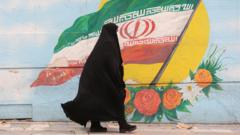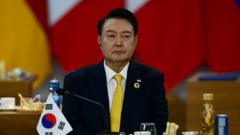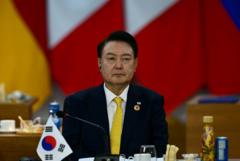Two months of protests in Bolivia stem from a leadership crisis within the ruling MAS party, leading to significant public unrest and resulting in fuel scarcity. The situation is emblematic of broader political turmoil affecting neighboring nations.
Protests Ignite Political Rivalry and Fuel Crisis in Bolivia

Protests Ignite Political Rivalry and Fuel Crisis in Bolivia
Ongoing demonstrations in Bolivia, rooted in a contentious political feud, have resulted in fuel shortages, leaving drivers stranded for days as unrest spreads through the region.
For over two months, Bolivia has been engulfed in protests fueled by a bitter feud between President Luis Arce and his predecessor Evo Morales, creating a political and social maelstrom. The clashes between supporters of the two leaders have intensified, leading to widespread disruption, including the blockage of essential supply routes, which exacerbates an already critical fuel shortage. Many Bolivians have found themselves waiting up to several days to refuel their vehicles.
This unrest in Bolivia is not isolated; it reflects a larger wave of dissatisfaction surging across the Andean region of Latin America. Country neighbors such as Ecuador, Peru, and Colombia are also witnessing political turmoil, indicating a regional crisis characterized by growing public dissent.
At the heart of Bolivia's discord is a serious schism within the ruling Movement for Socialism (MAS) party, which has dominated the political landscape for two decades. The rivalry between Arce and Morales, who once mentored him, has triggered a power struggle, each asserting their claim as the legitimate candidate for the upcoming presidential elections.
The upheaval also signifies a decline in the power of MAS and Morales, Bolivia's first Indigenous president, who helmed the nation for an extended period of 14 years, marking a significant era in its political history. Both leaders are at a crossroads, representing a broader ideological divide within the party that may shape Bolivia's political future and stability.





















